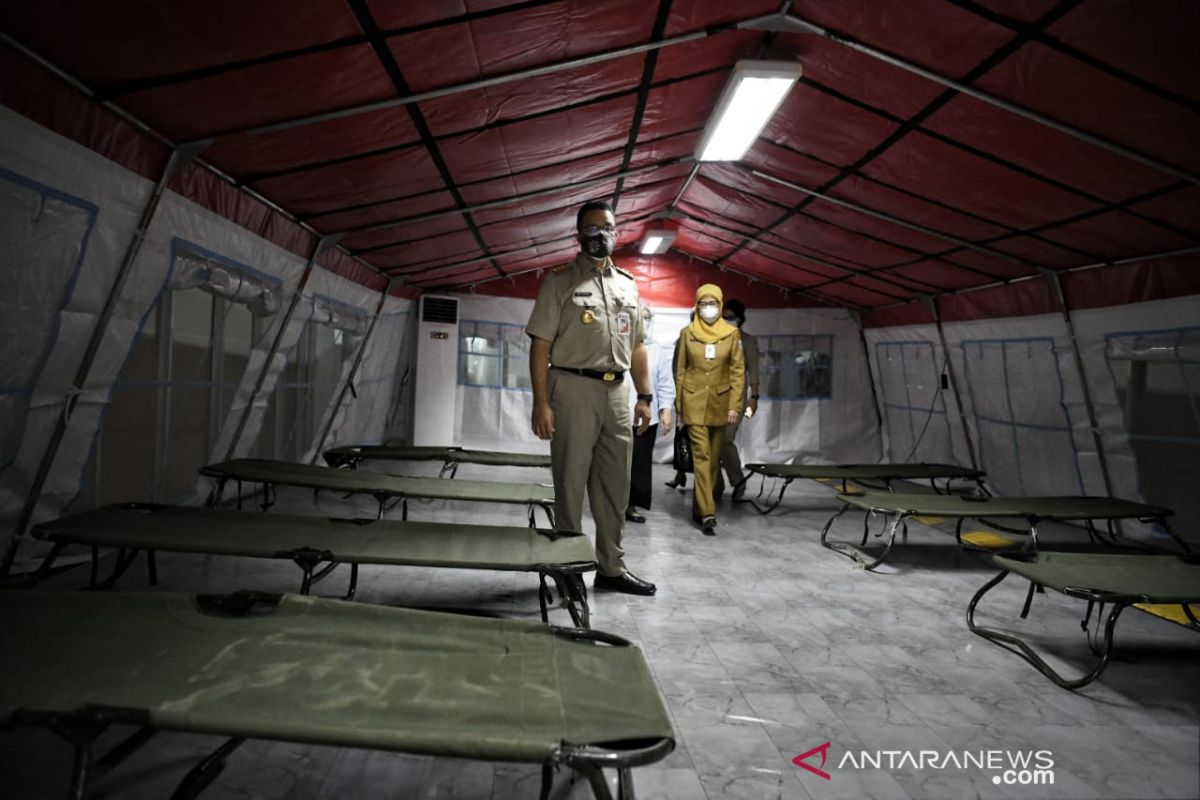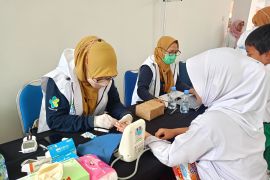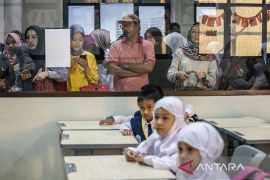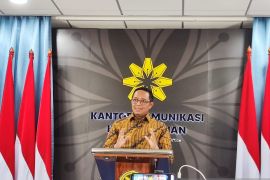The survey was carried out in collaboration with the Jakarta Provincial Health Office, Eijkman Institute, and CDC Indonesia.
The detection rate of COVID-19 cases is very low, as only 8.1 percent cases have been detected, while 91.9 percent have remained undetected in the serological survey, which was conducted from March 15 - March 31, 2021, epidemiologist Pandu Riono from FKM UI said.
"It means, if we look at most of the data in Jakarta, actually the (number of) cases in the population could be much more because only 8.1 percent were reported or detected in the system," Riono said during an online discussion organized by Persepi here on Tuesday.
A serological survey measures the immune response to an antigen using blood sample tests, he explained. The UI survey was designed to assess the number of Jakarta residents who had been infected with COVID-19 or had developed SARS-CoV-2 antibodies, he added.
According to the survey, of the patients whose infection went undetected, 57.4 percent were asymptomatic, while 34 percent were symptomatic, he informed. This figure shows the number of asymptomatic patients (OTG) is quite high and is not detected by the system, he noted.
Most asymptomatic patients are from the younger age groups, with 70.8 percent of OTG patients in the 1-14 age group., while 65.9 percent are aged 1 and under. Of the remaining OTG patients, 62.6 percent are in the 15-49 age group and 55.7 percent are aged above 50, Riono said.
The serological survey took 4,919 samples (98.4 percent) from five thousand people aged 1 year and above, spread over 100 urban villages in six administrative areas of Jakarta, he disclosed.
To test for SARS-CoV-2 antibodies, officers used accurate testss donated by the US CDC using the tetracore-luminex tool
Head of health handling for the COVID-19 Task Force, Brigadier General TNI (Retd.) Dr. Alexander K. Ginting, said that the level of testing is high in Jakarta and exceeds what is required by WHO standards, but it is not yet reflecting what has been seen in the serological study.
"There is something we have to look for in the missing link," he observed.
This research would be useful to review whether the 3Ts (testing, tracing, and treatment) should be sought in the new model, he added.
"The results of this research can be used to raise enthusiasm among all parties, including the community and government, to increase participation in the implementation of health procedures and the implementation of the 3Ts," he remarked.
Related news: COVID-19 surge: Jakarta governor asks residents to reduce travel
Related news: Jakarta's daily COVID-19 cases hit record high of 9,271
Translator: Rizka K, Fardah
Editor: Suharto
Copyright © ANTARA 2021












